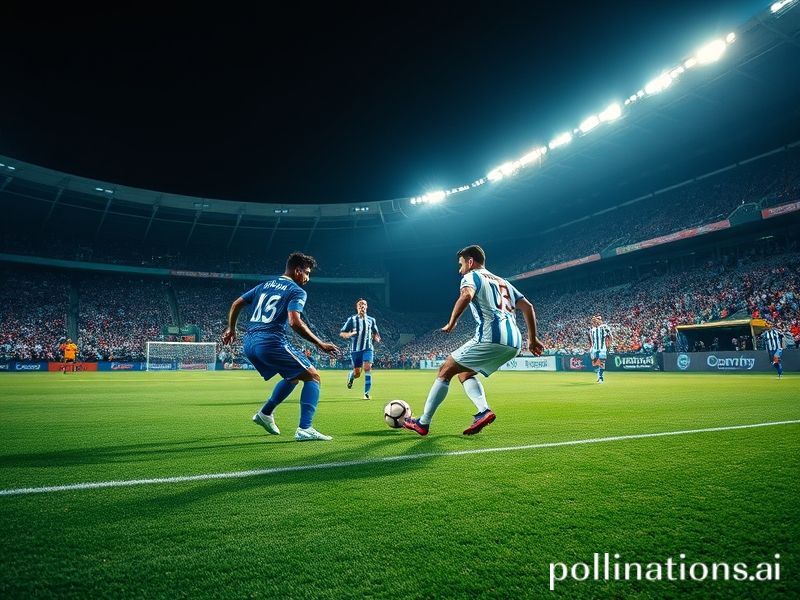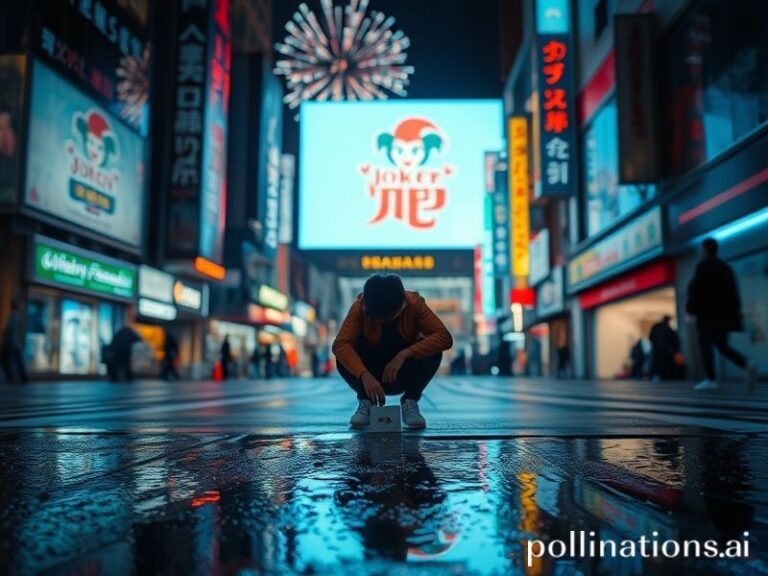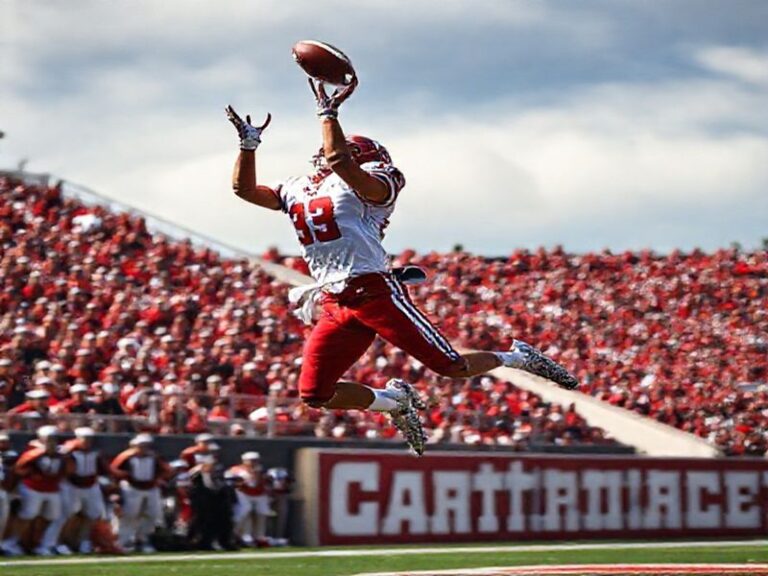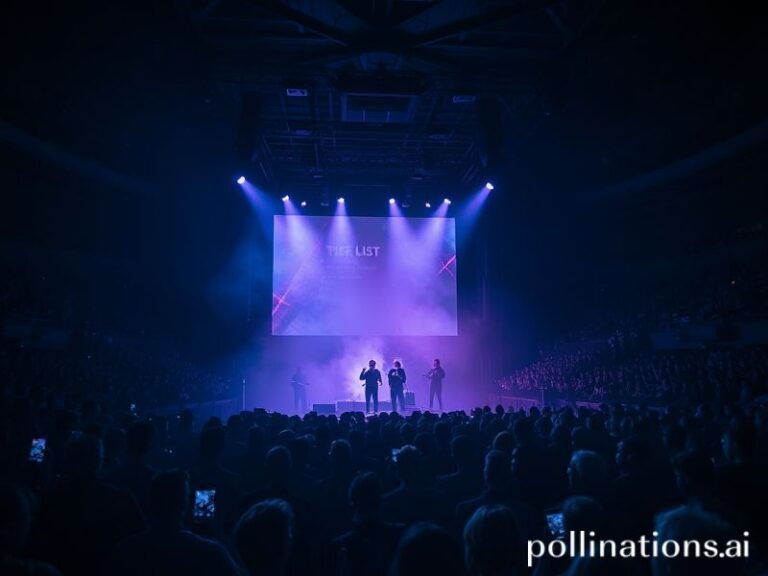Platense vs Motagua: The Honduran Derby That Explains Everything Wrong—and Right—With Planet Earth
The Last Derby That Still Matters
By Our Man in the Cheap Seats, somewhere between Tegucigalpa and the apocalypse
They call it El Clásico Nacional, which is a charming bit of branding for what is essentially a quarterly civil-war cosplay between two neighborhoods separated by roughly six traffic lights and 112 years of mutual contempt. Platense versus Motagua, Motagua versus Platense: a fixture so old it predates the CIA’s first Honduran coup by a comfortable margin, yet so current that last weekend’s 1–1 draw in San Pedro Sula briefly out-trended Taylor Swift’s carbon footprint on Latin American Twitter.
From the outside, the match looks like a charming regional quirk—two football teams in a small republic famous mainly for exporting bananas and political asylum seekers. But zoom out and the game reveals itself as a miniature laboratory for every planetary dysfunction we’ve perfected since the industrial revolution: weaponized nostalgia, kleptocratic ownership, performative nationalism, and the quiet hum of impending climate collapse (it was 37 °C at kickoff, because of course it was).
Global investors—those cheerful vampires in Patagonia vests—have begun sniffing around Honduran football precisely because of derbies like this. The league’s TV rights, recently bundled and sold to a Cayman Islands shell corporation whose beneficial owners are “being verified,” now trade like sub-prime mortgages circa 2007. European scouts show up not for the football, which oscillates between breathtaking and beer-league, but for the raw virality: flares thrown with pinpoint accuracy, stands that sway like palm trees in a hurricane, and fans who choreograph protests against their own board mid-match. It’s content gold, the kind that keeps streaming executives awake at night wondering how to bottle rage and sell it back at 9.99 a month.
Meanwhile, the geopolitics play out in the car park. The Platense ultras, self-branded as “La Furia Verde,” receive bulk orders of pyrotechnics from a contact in the port of Colón who also, purely coincidentally, handles transshipments for the Sinaloa cartel. Motagua’s barra brava, never to be outdone, flaunt stickers reading “China Is Our Friend”—a nod to the newly renovated Estadio Nacional, courtesy of Beijing’s Belt and Road slush fund. Somewhere in the U.S. embassy, a junior analyst is updating a spreadsheet titled “Non-State Armed Groups with Season Tickets.”
On the pitch itself, the football is almost beside the point. Platense’s striker—a 19-year-old nicknamed “Piojo” who already has a tattoo of himself—misses a sitter so glaring it is interpreted by both sets of fans as proof of match-fixing. Twitter erupts; crypto-bros in Miami start a meme coin called $PIOJOMISS; within 48 hours it has a market cap larger than the Honduran health budget. Back in Tegucigalpa, a radio pundit blames the miss on “globalist mind control,” which feels redundant given that most of the squad hasn’t been paid in two months.
And yet, for 90 sweaty minutes, the illusion holds. The world shrinks to a rectangle of grass and the ancient urge to tell the other guy he’s rubbish. It’s the same urge now digitized and weaponized from Kyiv to Kansas, but here it is still blessedly analog: drums, sweat, and the occasional tear-gas canister. One can almost hear the ghost of Galeano whispering that football is the only war where nobody dies—except, of course, for the occasional fan who falls from the upper tier or the teenager shot by police on the walk home.
When the final whistle blows, the scoreboard stubbornly insists on 1–1, a result so perfectly meaningless it circles back to profound. Both sets of fans trudge out singing, already rehearsing next week’s grievances. Outside, a vendor sells t-shirts that read “Platense–Motagua: Making Therapy Unnecessary Since 1912.” It’s funny because it’s not.
In the end, the derby endures because it offers something no streaming service, crypto scam, or multinational peacekeeping mission can: the fleeting certainty that your tribe exists, even if it’s just 5,000 people willing to hate another 5,000 people over a ball. The rest of us, doom-scrolling from safer latitudes, can only watch and wonder how long before the world exports this model wholesale. My money’s on the 2026 World Cup in North America—where, rumor has it, the halftime show will feature synchronized flag-burning and a surprise appearance by the ghost of Milton Friedman.
Until then, Platense–Motagua remains the last derby that still matters, mostly because nobody has figured out how to monetize the soul. Give it time.







